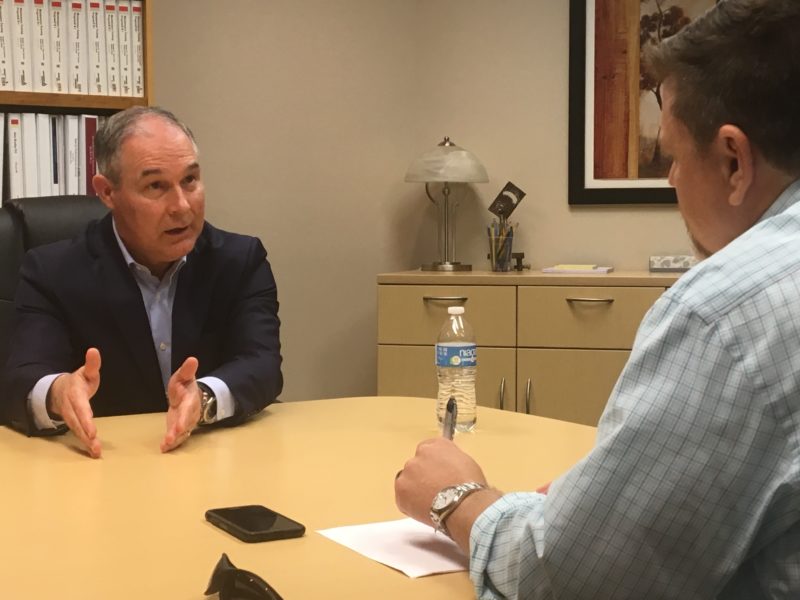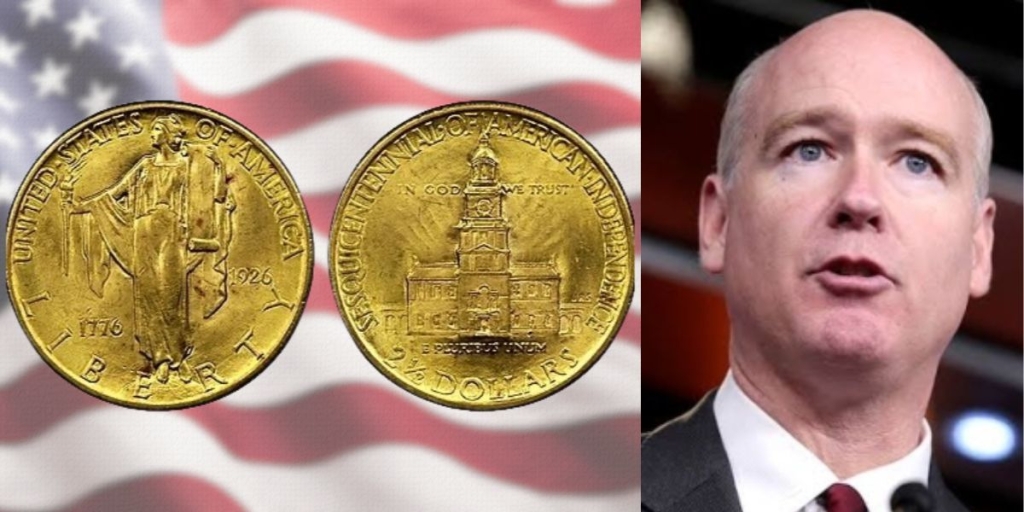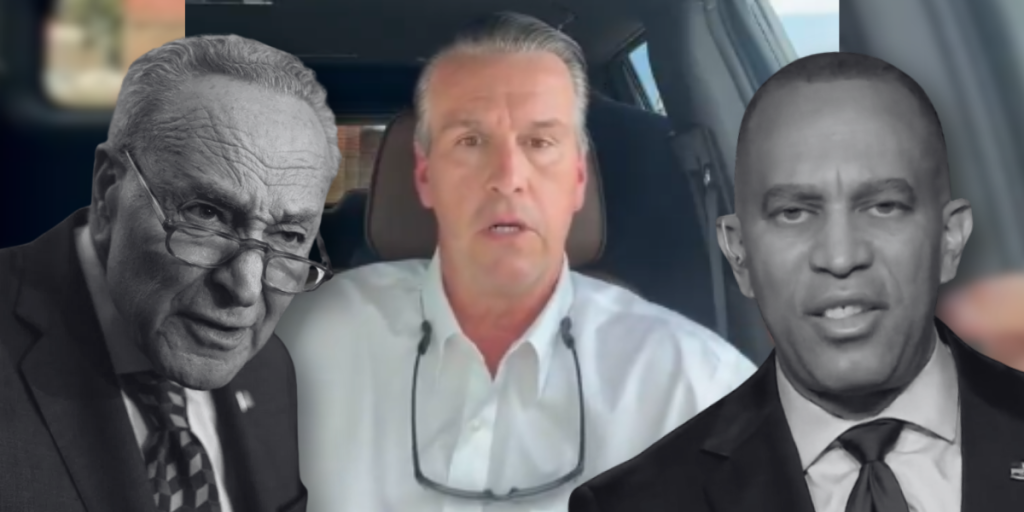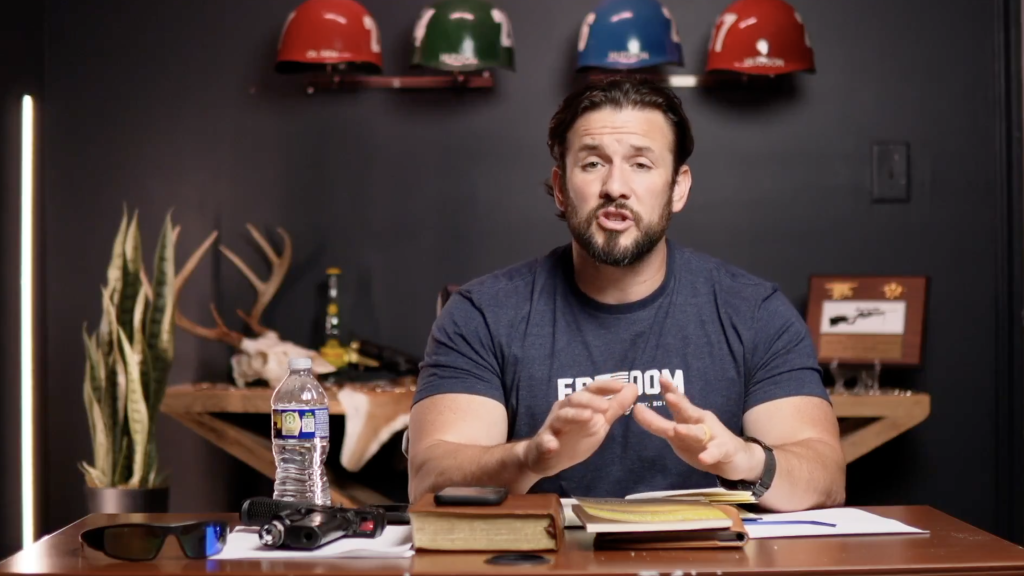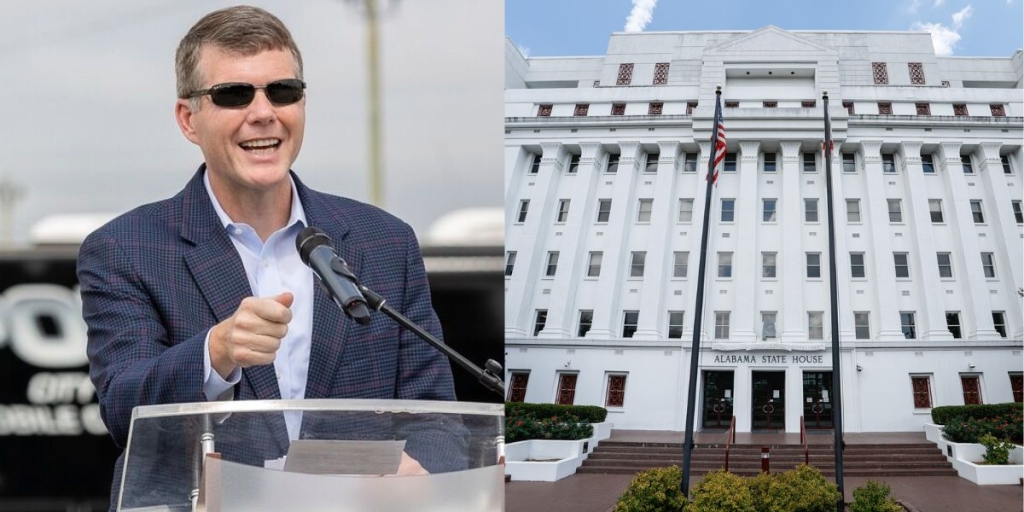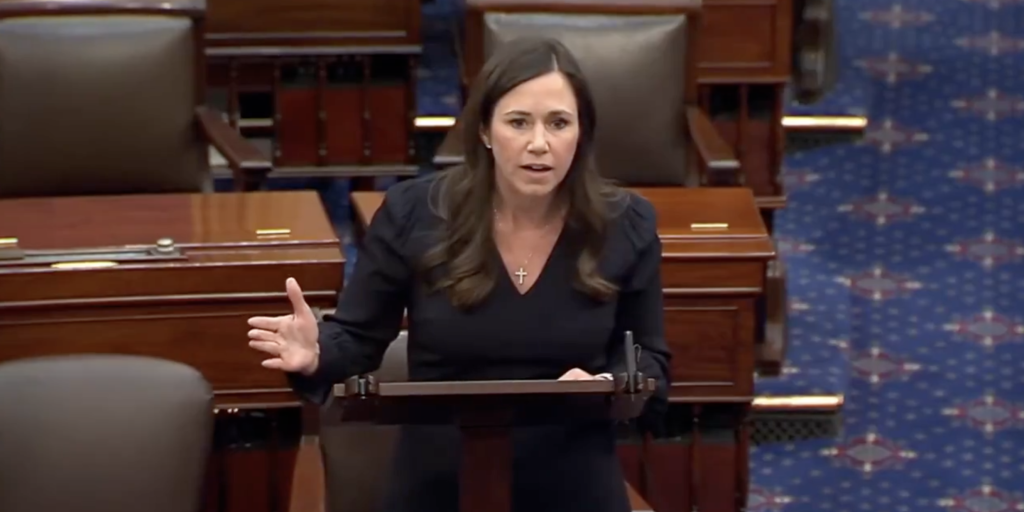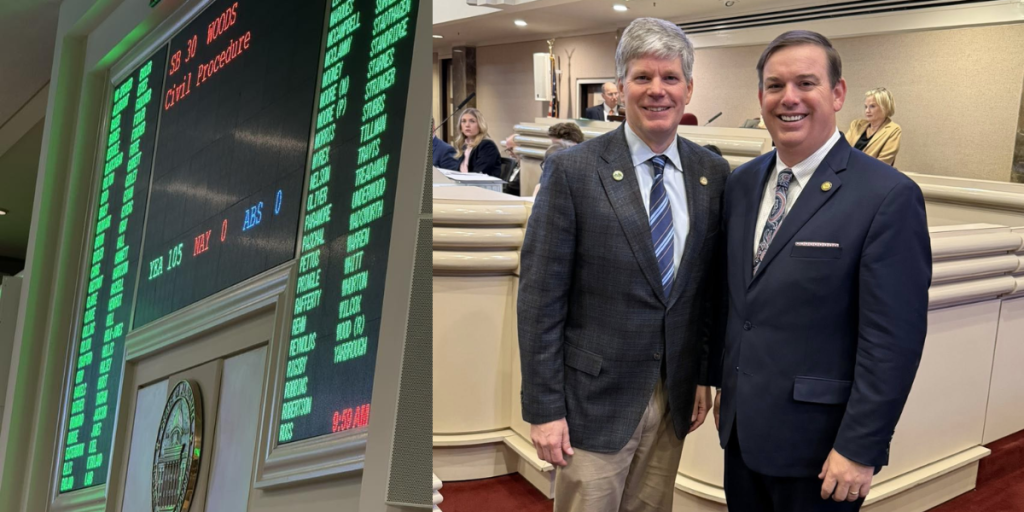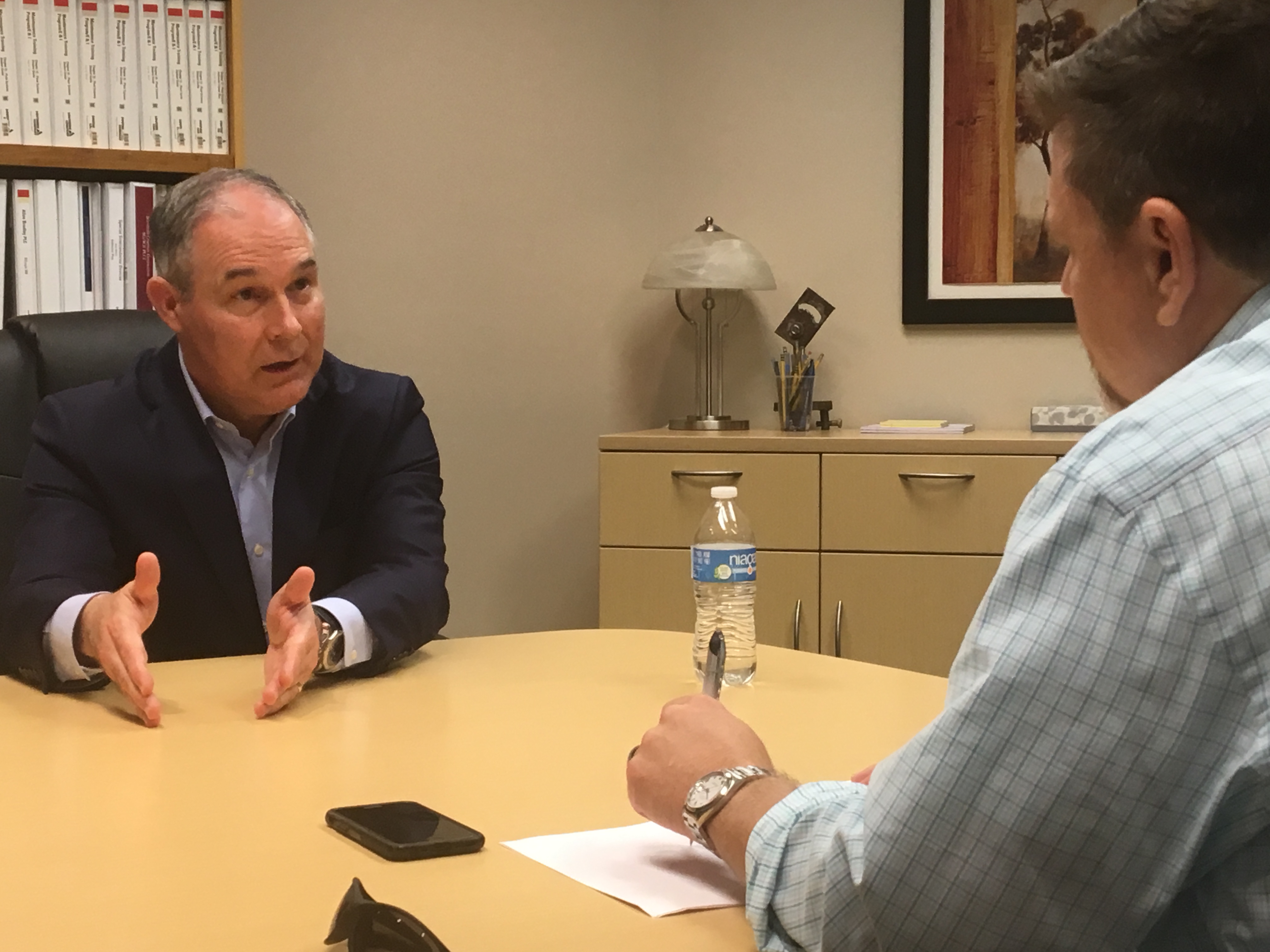
Scott Pruitt, Administrator of the U.S. Environmental Protection Agency (EPA), was in Alabama yesterday and he took time to speak with Yellowhammer at Alabama Power’s Plant Gaston in Wilsonville—home to the U.S. Department of Energy’s National Carbon Capture Center.
On a southeast tour to further his Back-to-Basics plan to protect the environment, Pruitt said his focus for the EPA is that it will begin a new era of “regulatory certainty.”
When asked to elaborate on this idea, Pruitt said:
Achieving regulatory certainty on behalf of businesses simply means we’re going to act within the law. Over the past eight years, the EPA has been unpredictable, often going beyond its statutory limits. It has acted haphazardly with respect to its rulings, which paralyzes those we serve.
In other words, in the previous administration, farmers, ranchers, and businesses rarely knew how the EPA might interpret their actions, and Pruitt said he’s determined to reverse that trend. “The last administration re-imagined the law,” Pruitt said. Under the Clean Water Act, for example, they completely redefined Waters of the U.S. to include everything from dry creek beds to drainage ditches.”
We asked Administrator Pruitt why he thought the EPA became an activist organization more than a legal one. “They wanted to make land use decisions,” he said. “They wanted to come into states like Alabama and tell farmers who’ve responsibly gone about their business for generations how to run their farm. This is not right; it’s not fair, and it’s going to stop.”
Mr. Pruitt expounded on this theme, pointing out that these farmers have a vested interest in conservation and environmental integrity. He said landowners obviously understand that it doesn’t serve them well to destroy the very thing that provides for their families—their land, air, and water. For this reason, he believes it was presumptuous of the previous EPA to assume that they knew how best use a person’s private land.
They wanted to come in and say, before you use your land to build a subdivision, drill a well, or run a ranch, you’ve got to check with us if it includes the Waters of the United States. And then they made the Water of the United States include a every puddle on a person’s land. We’re rescinding that and getting back to basics to ensure that as we do our job, we’re doing it withing the confines of what Congress has said the EPA should be doing: attaining clean air, water quality, superfund cleanup and all those things.
Pruitt provided a poignant example of the EPA’s past overreach, noting that under the three presidents that preceded Obama—Bush (41), Clinton (42), and Bush (43)—the agency issued a total of five federal implementation plans under the Clean Air Act over twenty years. Under the Obama administration, by contrast, the EPA issued more than 50 federal implementation plans in just eight years—ten times the number issued by three previous administrations combined.
“What that represents,” Pruitt said, “is an administration that said we are going to coerce the states and their citizens to do what we think is best, irrespective of how the statutes read. That era is over. We’re going to lead with clarity, under the lawful direction that the Congress prescribes.”
Pruitt, who filed multiple lawsuits against the EPA when he was Oklahoma’s Attorney General, also pointed out the fact that the EPA hardly has a stellar record in actual environmental achievements. “I sometimes ask this question rhetorically: what did the previous administration do that’s so great for the environment? The truth is 40 percent of the country—some 120 million people—still live in areas that don’t meet environmental standards. That’s the irony. President Obama was seen as the savior of the environment but, in truth, his EPA was focused on actions that usurped authority, while remaining passive where they should have implemented meaningful change. The Flint Michigan water crisis, which we are now fixing, is another example, and the list goes on. In other words, we’re going to focus on outcomes, not rhetoric,” Pruitt said.
Senator Luther Strange, who accompanied Pruitt on his tour of Alabama, noted that he wants to do all he can to support Pruitt in these efforts. “Legislatively, we’re trying to support Scott in areas where we can roll back over-burdensome regulations as rapidly as possible, and we’re also trying to confirm the team Scott needs around him to get this job done.”
Strange added, “You can see why I’m so enthusiastic about our new EPA chief. He’s the right man at the right time. I could not be prouder of my friend Scott Pruitt in the job he is doing to rein in the EPA and refocus this agency on following the rule of law as they seek to protect our beautiful environment….It’s a new day at the EPA. No longer will they work against the American people by introducing unnecessary, job-killing regulations that do nothing to achieve cleaner air or water, but simply act as a wet blanket on our economy.”
In closing, we asked Pruitt how life is going to be different for the Alabama farmer, landowner, and business owner. Following is his answer:
Under the previous administration a farmer had to get permission to sneeze. As I said earlier, in 2015 the EPA declared puddles, dry creek beds, and drainage ditches to be ‘Waters of United States.’ This provoked a fear of being fined because a farmer had to stop and ask, ‘what about this puddle of water here? Is that under the control of the federal government?’ This was very effective in creating paralysis among landowners and business owners because there was always uncertainty. That’s why I started out by saying our overarching objective is to create certainty among those we regulate and serve. To them we now say, ‘here’s where the law gives us jurisdiction and we’re going to make sure that our actions are consistent with that law.’ Does this mean we’re going to fail to preserve our environment? Not at all. It simply means we’ll act within the confines of our authority, respecting the legal rights of private citizens and the states in which they live.




